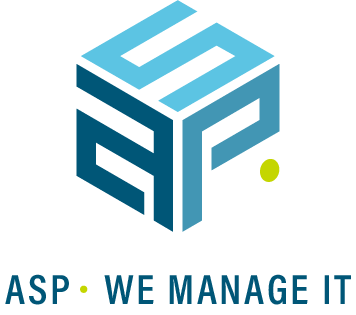5 Questions for selecting a Managed Services Provider
Many businesses are taking the view that keeping all IT inhouse is not any more the best scenario and see multiple benefits in IT outsourcing. If you are of the same mind, then the next step is to select a Managed Services Provider, MSP, that can actually make the benefits materialize and add real value. In this post, here are 5 questions that you should ask YOUR candidate MSP before making that very crucial decision.
1. Is Managed services the core business of your candidate MSP?
Asking if Managed Services provision is a core business is to identify if the MSP can manage daily operations of maintenance and support on the scale you need. Also don’t forget that the whole life cycle of service provision includes design, implementation, support and ongoing technology upgrade. Check for how long they are active in the provision of managed services? Discuss with their current customers for their satisfaction?
A check of the MSP client references will show if they have experience providing managed services to companies with infrastructure similar to your own. For each reference ask how long the service has been provided and a brief outline of the services provided.
2. Does the MSP have the whole spectrum and depth of technology expertise?
IT is complex and technology is evolving quickly: a technology and knowledge check is very important. Here are some items to check. Has the MSP currently the necessary breadth and depth of expertise to do the job based on the technology you are using or the technology that you are looking to implement? Do they have the capacity in terms of engineers, certification and partnership?
Typically MSP projects can involve networks, storage, servers, virtualization, middleware, databases, platform integration, cloud technology integration, security and… more! Does the MSP have people trained/certified and experienced in each of these areas? Not only should they be good at hands-on, but also have a solid theoretical understanding of the technologies. Will they be able to provide capacity for your business in terms of team availability?
Even more important is how quickly they can learn new fields that matter for your business? How committed are they to train their people in new technology as the IT world never stands still?
It is worth focussing on the security capabilities of the MSP as this is such a crucial element. Not only does the MSP need an in-depth understanding of security but they need to have tools to implement security and to keep your system fully secured all the time.
Last but not least, can they offer a full portfolio of operating models from traditional on-premise IT, private cloud, public cloud and hybrid environments?
3. Can the MSP offer a process based support?
By process based support, I mean best practice at a number of levels: In methodology for IT management, in processes for consistent service delivery and in the platform and tools used for monitoring, managing issues and reporting KPI on the solution availability and health.
ITIL model is best practice in IT service management: ITIL is the industry standard to manage processes, procedures, people, tasks, IT components and applications in order to align business and IT. It allows the organization to establish a baseline from which it can plan, implement and measure. It includes best practice for managing problems, events, change, and configuration… It is crucial when choosing an MSP to check their understanding of ITIL and how compliant they are with this Industry Standard. It is also important to align your company and the MSP on sharing the same definition regarding Incident, Service Request, SLA… to avoid misunderstanding and frustration.
As responsibility for performance will rest with the provider, SLA’s, Service Level Agreements, are essential to agree on the performance level to be delivered.
Good tools and practices for monitoring all the components of the solution. The monitoring offered by the MSP should be pro-active rather than just re-active. Thus the MSP should have diagnostics tools to identify issues before they occur. Such tools typically have advanced analytics with alerts mechanisms and automated workflow capability and escalation.
The MSP needs to have consistent service delivery supported by defined policies (ITIL or others), appropriate processes and tools. Ensure that the MSP has a secure web-based portal which allows opening of incident/request tickets and that can give status on open tickets and gather information on all services together via an easy to read dashboard. In this way they should have real-time visibility of services shared between all involved people, on the performance of the managed services and the health of infrastructure.
24/7? Do you need 24/7 support for part of your infrastructure or applications? Can your MSP offer this service? What happens if there is an incident at 3am? The service “out of hours needs” to be specified also and answered based on your requirement.
4. Is there a Cultural fit with between the MSP and your organization?
This question may not seem too important at first glance. Yet the MSP should act as an extension of your IT department or with your business people and therefore the way they work and communicate will function better if there is a fit with your own business culture. The individuals in the MSP will interact with your people and the more compatible they are and have shared values and a common understanding of “how things should be done”, then the more effective the relationship will be.
5. Does the MSP and its management have a clear understanding of your Critical Success Factors?
What are you critical success factors? How is your company IT measured by the business? This should be shared with your MSP. This is a key question for the success of your current outsourcing or managed service project but is also essential on the long run.
The immediate need is that the MSP understands your current business and IT requirements. It is a pre-requisite for them to build a fit-for-purpose solution that supports your business objectives.
However you can be sure your needs will evolve. So share with the MSP your business success definition, vision and long term plans, and assess whether the MSP will be able to support your business strategy in the future. Here key considerations are their flexibility for change, their vision and engagement. Ideally the MSP will have good vision of where emerging technology is headed and act as a trusted advisor. The MSP should act as an extension of your own IT department, stay engaged and advise you on technology options and pro-actively anticipate your needs.
Last but not least the project will start with a transition project? Project Management skills and Methodology for smooth transition and deployment are essential. Include under this point a check for evidence of their management capability and its alignment with your Critical Success Factors.
Conclusion
Choosing an MSP is not an easy task, you will have to stand behind your choice for several years and work with this partner in the long run. Do the right due diligence work in order to increase your success rate. The 5 questions I highlighted are the starting point of your Managed Services Journey.


